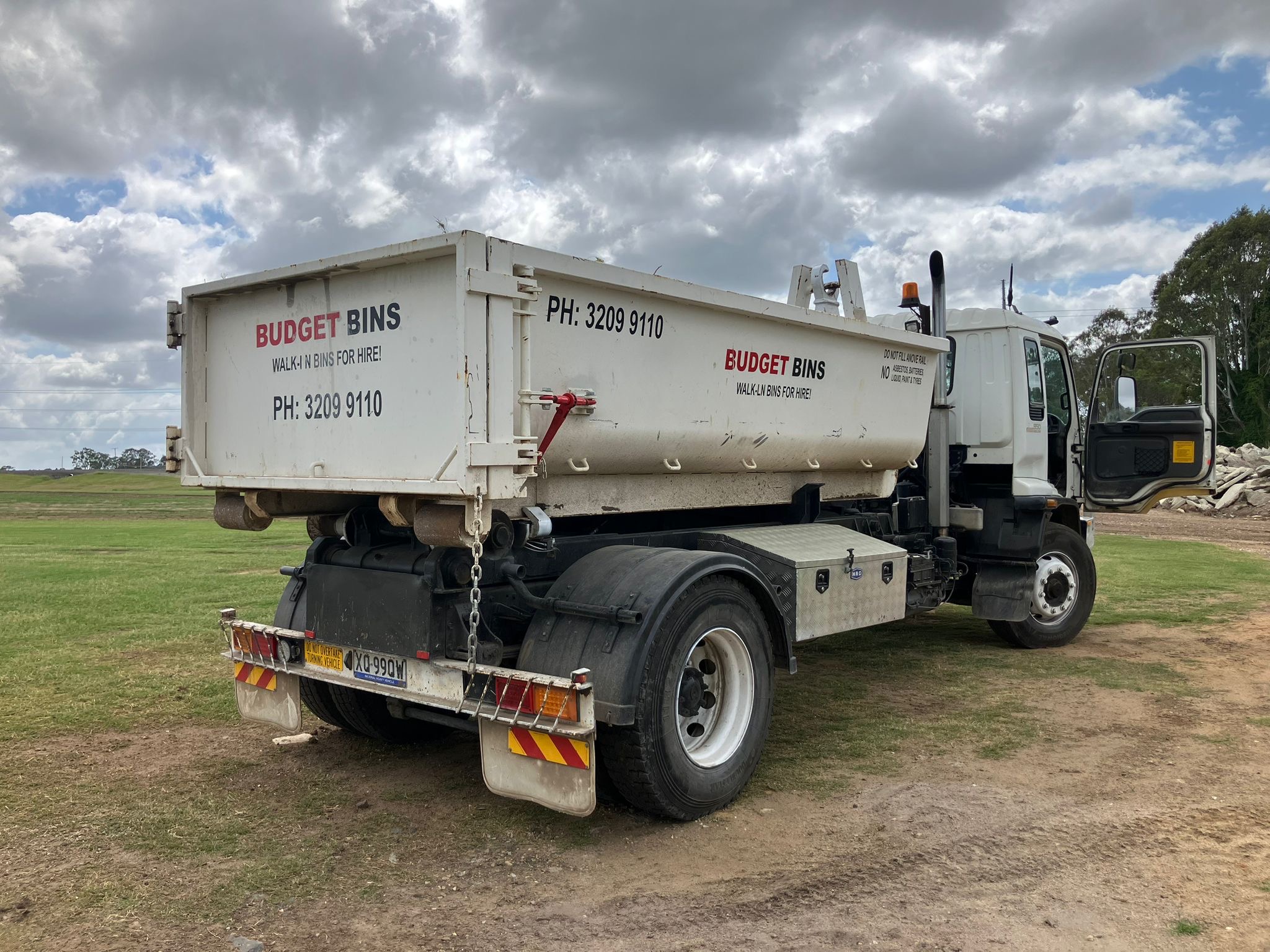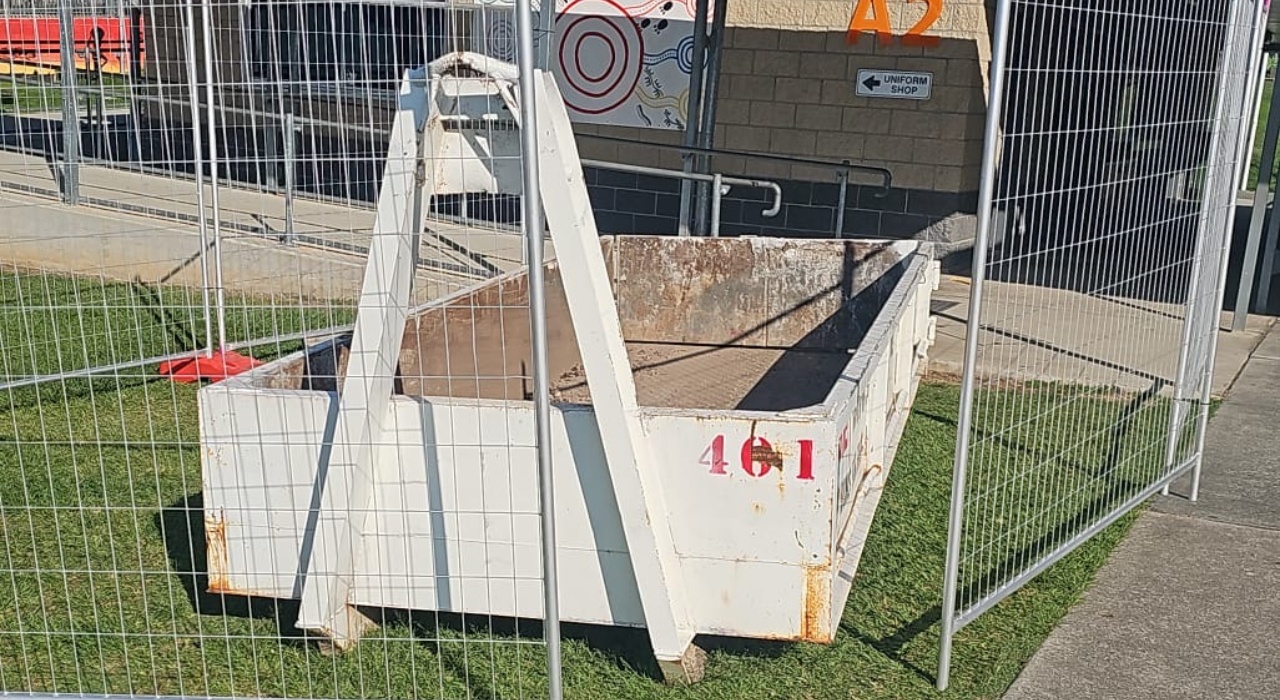
Skip Bin Size Guide Brisbane – Choose the Right Bin for Your Needs
When planning a cleanup, renovation, or construction project in Brisbane, selecting the appropriate skip bin sizes is crucial for efficient waste management. Budget Bins offers a range of skip bin sizes to suit various needs, from small household cleanups to large commercial projects. This comprehensive guide explores skip bin sizes, their uses, and tips to help you choose the perfect bin for your project in Brisbane.
Understanding Skip Bin Sizes
Skip bins come in various sizes, measured in cubic meters, to accommodate different types and volumes of waste. Budget Bins provides options ranging from compact 4m3 bins to spacious 12m3 bins, catering to residential, construction, and green needs. Each size serves specific purposes, and understanding their capacities helps you avoid overpaying for unused space or underestimating your waste volume.
Why Size Matters
Choosing the right skip bin sizes prevents issues such as overflowing bins or needing multiple bins, which can increase costs. A bin too small leads to additional hires, while an oversized bin wastes money and space. By assessing your project’s waste type and volume, you can select a bin that fits your needs perfectly, optimising both efficiency and budget.
Available Skip Bin Sizes At Budget Bins Brisbane
4m3 Skip Bin
- Suitable for: Small household clean-ups, garden waste removal, minor renovations.
- Capacity: Equal to approximately 16 standard wheelie bins or 4 box trailer loads.
- Common projects: Spring cleaning, garden pruning, small room renovations.
If you are cleaning a small shed or trimming trees and bushes, this bin size is a great choice. It fits comfortably on most residential driveways without obstructing access.
6m3 Skip Bin
- Suitable for: Medium-sized household projects, landscaping jobs, small-scale construction waste.
- Capacity: Equivalent to around 24 wheelie bins or 6 trailer loads.
- Dimensions: Approximate measurements are 3.6m long, 1.6m wide, 1.2m high.
This is the most popular skip bin size for Brisbane families. It is perfect for kitchen renovations, clearing multiple rooms, or getting rid of an old fence and garden debris. A 6m³ bin can handle mixed general waste, green waste, and some building materials without difficulty.
8m3 Skip Bin
- Suitable for: Larger renovations, full garage clear-outs, medium construction jobs.
- Capacity: About 32 wheelie bins or 8 trailer loads.
If you plan to undertake a large bathroom remodel, remove old decking, or deal with bulky furniture, this skip bin size gives enough space for mixed waste types, including heavy items. This bin is often used for real estate property clean-outs or when preparing a house for sale.
10m3 Skip Bin
- Suitable for: Large commercial clean-ups, major home renovations, demolition waste.
- Capacity: Roughly 40 wheelie bins or 10 trailer loads.
Builders, contractors, and property managers commonly choose this size for demolitions, extensions, or roofing replacements. It handles large amounts of bricks, timber, concrete, and soil.
12m3 Skip Bin
- Suitable for: Major construction sites, large-scale demolitions, industrial projects.
- Capacity: Approximately 48 wheelie bins or 12 trailer loads.
This is the largest skip bin size Budget Bins offers. Use this for heavy waste, including masonry, bricks, tiles, and large metal objects. Due to its size, check space availability at your site and consider council permits if placed on the street.
How To Maximise Your Skip Bin Space

How To Maximise Your Skip Bin Space
1. Plan Before Loading
Take time to plan what goes into the bin first. Start with heavier waste items like bricks, tiles, and concrete to form a stable base. This prevents the bin from tipping or becoming unbalanced when moved.
2. Break Down Large Items
Dismantle bulky furniture, break apart timber pieces, and flatten cardboard boxes to reduce the space they take. Large, whole items can leave awkward gaps that waste room in the bin. Cutting down branches or other garden waste also allows you to fit more material.
3. Fill Gaps with Small Waste
Use soft or flexible waste like grass clippings, leaves, or old fabrics to fill small spaces between large items. These materials can be compressed into tight gaps to avoid air pockets. Filling gaps properly increases the total amount of waste you can dispose of.
4. Do Not Overfill Above the Rim
Always keep waste below the top edge of the skip bin. Overfilled bins cannot be collected safely and may result in extra charges or collection refusal. Staying within the rim also follows legal transport requirements.
5. Avoid Prohibited Waste
Never place asbestos, chemicals, oils, gas bottles, or other hazardous materials into the skip bin. These items are banned and could cause safety risks or disposal problems. If unsure about an item, ask Budget Bins for advice before loading.
Common Mistakes To Avoid When Hiring A Skip Bin

Common Mistakes To Avoid When Hiring A Skip Bin
1. Ordering Wrong Skip Bin Sizes
One of the most common mistakes is choosing a skip bin that is too small for your waste needs. This often leads to overfilling or the need to hire a second bin, which costs more. To avoid this, always estimate your waste volume carefully and ask the skip bin company for size recommendations.
2. Mixing Prohibited Waste Items
Placing banned materials like asbestos, batteries, chemicals, or paint in your skip bin is a serious mistake. These hazardous items are not accepted and may cause collection delays or fines. Always check the list of prohibited items on Budget Bins’ website before filling your bin.
3. Overloading The Bin Above The Rim
Overfilling the skip bin past its top edge is both unsafe and illegal for transport. A skip bin that is overloaded may be refused by the collection truck or result in additional charges. To avoid this, plan your loading process and choose the right size bin from the start.
4. Poor Waste Sorting
Failing to separate green waste, general rubbish, and heavy materials can cause problems during recycling or disposal. Some skip bins are meant for specific waste types, and mixing the wrong materials may result in penalties or extra handling fees. Make sure you understand the bin’s purpose and load it with suitable waste only.
5. Not Checking for Council Permits
If you plan to place the skip bin on public land such as a footpath or nature strip, you may need a permit from your local council. Many people forget to arrange this in advance, leading to possible fines or having the bin removed. Always check permit requirements before booking a bin.
6. Ignoring Safety Guidelines
Ignoring safety instructions, such as lifting heavy items properly or avoiding sharp objects sticking out, can cause injury or damage. Unsafe loading can also pose risks to the collection team during transport. Follow the safety advice provided by Budget Bins to ensure a safe experience.
Conclusion
Selecting the right skip bin sizes for your Brisbane project saves money, time, and hassle. For backyard cleanups, home renovations, or construction projects, Budget Bins provides skip bin sizes ranging from 4m³ to 12m³ to meet your requirements.
Need help choosing a skip bin? Contact Budget Bins Brisbane to discuss your waste removal project and get a free quote tailored to your needs.
